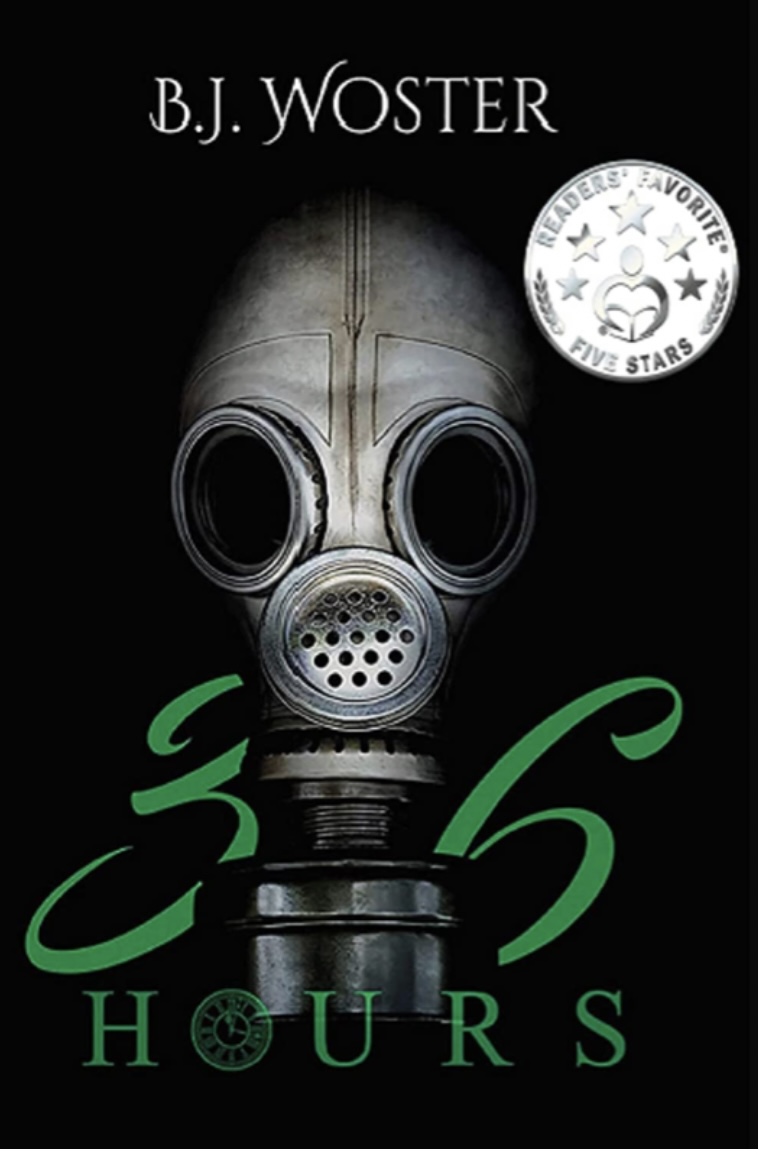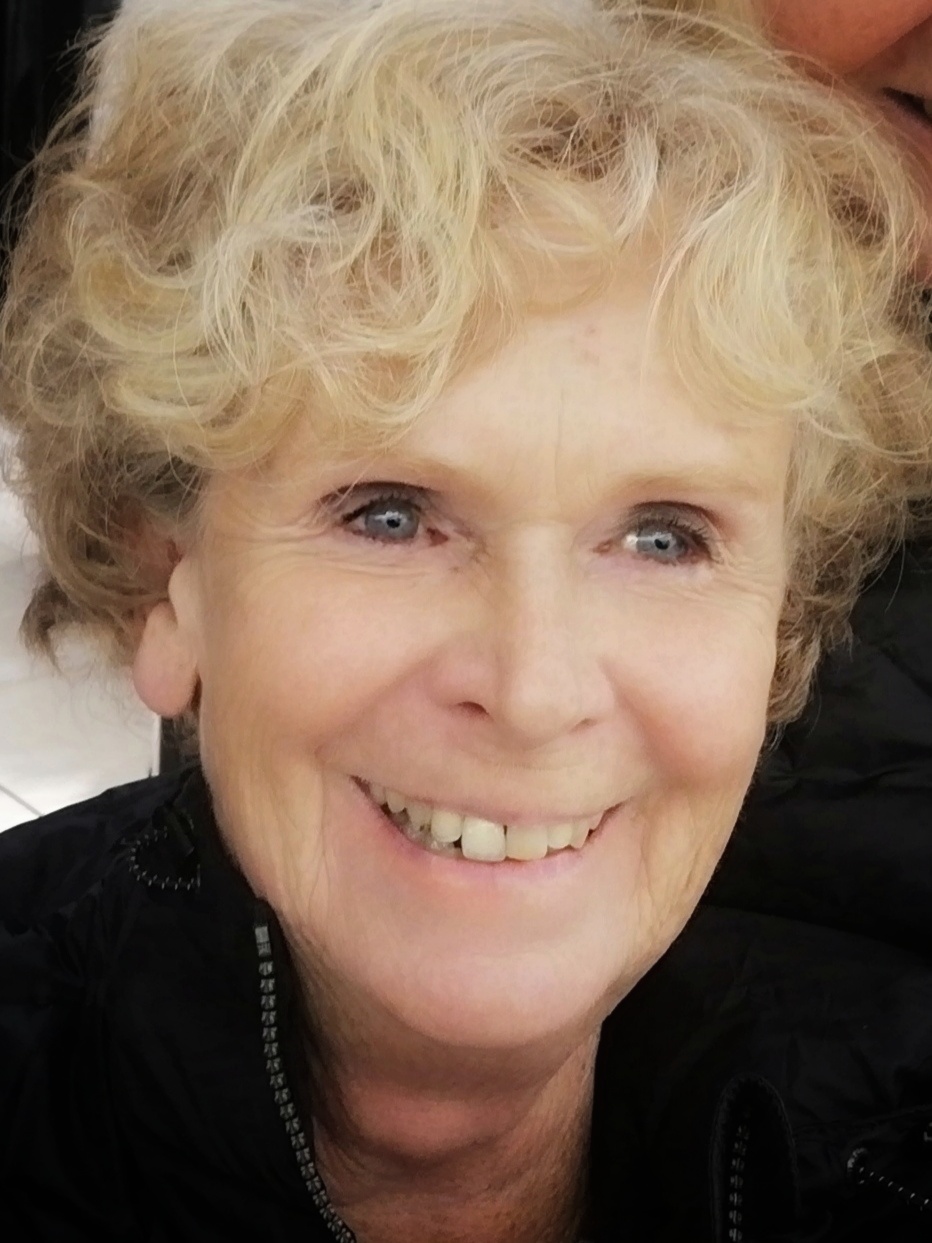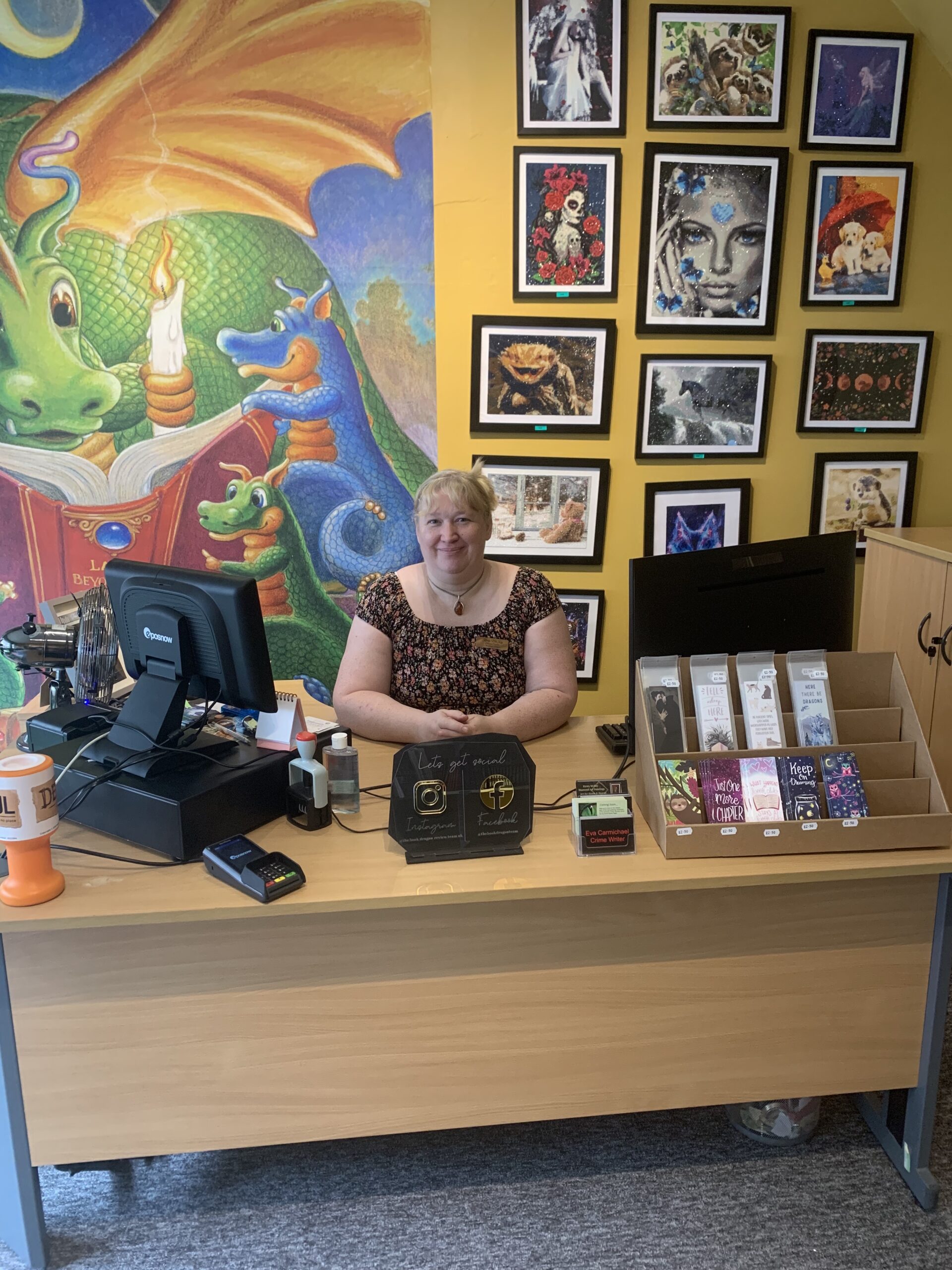
36 Hours Book Tour
Cover Blurb
Christian Price is a scientist who suffered a tragedy unsolved by local police. To right that which he perceives is broken, he begins to execute experiments in different cities to test the response times of local law enforcement. Detective Hardwick is a 30-year veteran of the Atlanta Police Department. He and his fellow officers find themselves the latest targets of Price's malevolence. Will more unwilling participants be lost to Price's brutality or can the detectives follow his perverse directive before time slips away?
Other Titles By the Author

Barbara Woster
Author Bio
Barbara Woster is a writer, but had it not been for a tragedy, her dad, and Clive Cussler, her life may have taken a different path. When she was 14, a friend of hers decided to make her life a bit more interesting than it already was, to that point anyway. He accomplished this by shattering her knee. Quite accidentally and with no malice intended, but damaging, nonetheless. Until that day, she’d been a competitive runner and that incident put an end to ever doing it again. Her knee was shattered, and so -- she thought -- were her dreams. Barbara has two full-time careers, at present. Her primary – the one that pays the bills most – is her childcare business. She is the owner and proprietor of Laughter and Love Daycare in Portland. From 6 a.m. to 6 p.m., Monday – Friday, Barbara works with the smallest of the small: ages 6 weeks to 4 years of age. I also have a Masters degree in Education. In her spare time – early a.m., late p.m. and weekends – she writes, markets her work, updates her websites (all 3 of them), and tries to keep up with her social media posts. It’s rather exhausting, and Barbara cannot thank her daughters enough – all four of them – for tolerating the long, busy days. They were the ones that encouraged her to write, long ago, when they found a folder of her story ideas. At that time, she was a single parent, so writing had been put on hold so that she could focus on working and keeping a roof over her daughters’ heads. They are Barbara's world, and she loves them heart and soul.
The Book Tour
Day 1 - Favourite Quotes
Day 2 - Character Summaries
Brooke Madison: For her strength and determination. I willed her to keep trying and hoping. She kept me in the moment and I felt very anxious throughout the section of the book where she was a prisoner, as I wanted so much for her to be okay. (Eileen Tilley)
Detective Steven Hardwick: He is the central character in the investigation and I liked him because he seemed genuinely concerned to solve the case, used his excellent detecting skills, and despite arguments, worked with the team successfully. His arguments with Wilson, another detective added tension, as they had so little time to solve the crimes. I certainly felt the urgency of their work, and could imagine them in the control room, frantically trying to decide what to do. (Jeannie Moore)
Brooke Madison: She had trusted Christian and thought she knew him. When she was captured she showed resilience and a strength of character. She never gave up trying to escape even though it seemed impossible. The author built on initial impressions of weakness to develop such strength of character which put the reader onside for her to succeed in her escape. (Karen Looms)
Brooke Madison: We spend a lot of time with Brooke, exploring her state of mind, watching her as she struggles with her circumstances. She is the lens through which we are introduced to the plot of the novel and its main character. One feels that there is a degree of resonance and sympathy with which Brooke is treated by the author, and, for me, it makes her stand out amongst the cast. (Tim Marshall)
Christian Price: The antagonist of the story was a tortured soul. His own loss and grief drove him to push police forces across the country to improve their approaches to solving missing persons cases. However, his methods were not only unorthodox, but dangerous – and usually deadly. If ever one could feel empathy for a serial killer, this is one for whom the reader could root – not to succeed in killing his victims, but in finding help for his suffering from trauma. He clearly suffered from post-traumatic stress disorder or some similar reaction to the events of his past. In effect, he became a crusader for change in police practices and tactics that had failed to rescue his now-deceased wife. Yet, in carrying out that crusade, he became guilty of the very crimes that he was trying to prevent – despite the fact that he genuinely rooted for his victims to be rescued and survive. By the time the story was careening toward its conclusion, I was rooting for him to find redemption – perhaps the mental health intervention that he clearly needed. (Ben Marshall)
Christian Price: When an Antagonist is able to elicit empathy in the reader, this for me is indicative of a well written and believable character. As the story progresses you do get a sense of how deeply Christian's pain and grief runs, especially for him to resort to such measures, and it is clear he needs professional help and support in dealing with his trauma which is the trigger for his behaviour. He is genuinely rooting for his victims to be found by law enforcement, which contradicts a serial killer's desire to take a life without any show of remorse, or to be caught. Christian is a complex character. As a reader, I would be interested in digging deeper into his psyche, and going a lot further into his story from childhood to adulthood, his feelings for his wife, and his inability to move on from that grief and loss as this would make for a compelling read. (Kirsty McKay)
Day 3 - Favourite Excerpts
“Hardwick yelled loudly in anger, but ignored the dispatcher, willing his car to move faster. He rounded the corner of the lower level and slammed on the brakes, sending his car skidding dangerously along the oily surface. Moments later it rammed into the concrete barrier, jarring the men inside, but none wasted a moment releasing their seatbelts and jumping from the vehicle.” This is a good example of the immediacy of the action, and the tension and urgency provided by the deadlines given by the killer. (Jeannie Moore)
All four men filed into the captains office, expressions dejected, but the anticipated ass-chewing didn't happen. "It's going to happen again," the captain said softly, worry in his tone. "Just before I waved you in here, the news agency stated that Price called them a few minutes prior, saying that he would definitely be abducting another woman, and that he was giving the local police department one more chance to prove some level of competency." (Kirsty McKay)
Day 4 - Video Interview
Day 5 - Reviews
Overall Rating 3.5 stars: This book captivated me. It is well written and fast paced. I cared about the characters, even Christian. I could understand his pain and grief. I read this in two nights and would like to see what else the author creates in this genre. (Eileen Tilley)
Overall Rating 3.5 stars: This novel is fast-paced and very tense in places, which I think was the author’s main intention. It is gripping and is an easy read. The pace did not drag at all, and the reader is certainly drawn into willing the detectives to rescue the victims. However, it reads at times more like a screenplay, as there is so much speech, and little description, except concerning the actions of the characters, and something about their thoughts. Even thoughts are written as if spoken aloud, especially when the author tries to get into the mind of the killer. This jarred with me personally. (Jeannie Moore)
Overall Rating 3.5 stars: Although I felt the book got off to a slow start, the author drew you in to the characters and the plot. I definitely wanted to know how the book ended and completed it in two days. An enjoyable read. (Karen Looms)
Overall Rating 3.5 stars: I was excited by the opportunity to read this novel, as it’s set in my birthplace of Atlanta, Georgia and I found the cover design to be quite striking. The book has a very strong, theatrical opening, diving into the tension throughout the novel right from the start, with what I consider to be a well-chosen locale to set the tone. I could quite easily imagine it as the first scene of a film or a cold open for a crime drama. From there, the plot unfolds at pace, with revelations steadily provided about the main agent of the narrative and stakes quickly established. The story is quite dark, as might be hinted at by the design and cover description. I did find that there were some editing issues in the novel, and they seemed to worsen as it went on. As someone whose mind homes in on such things, I found them somewhat distracting. However, they don’t affect the story itself or require rereading. While I felt some of the characters were well-developed, believable and distinct, I didn’t find that it was the case with all characters. In particular, some of the characters’ dialogue stood out in places as ‘thinking aloud’ in ways I found awkward. Overall, I felt that it was an interesting premise and an easy read with a complex plot structure that’s well-executed, but let down in places where the plot was pushed forward by awkward dialogue or hastily-established characters. There is a lot of potential here, and with a bit of honing and genre experience I think further thrillers by the author could be great. (Tim Marshall)
Overall Rating 3.5 stars: I found this book both enjoyable and suspenseful, with an engaging plot. I did find at times though that I would have liked more information, especially about the antagonist, Christian. Additional information that I'd be interested in is how he managed his finances and how he obtained the drugs he uses on his victims. (Valerie Moore)
Overall Rating 3.5 stars: 36 Hours derives its name from the time period that a serial killer provides police to find missing persons before they are killed. The killer seems to truly wish for police to find his victims and save them from death. He deems his activities as “experiments” designed to test police forces and prod them into improving their methods for dealing with missing persons reports. Author Barbara (B.J.) Woster shows ingenuity and creativity in setting up this crime thriller as more than a puzzle to be solved. Its premise is unique among my vast readings in the crime thriller genre. The villain is also perhaps the most sympathetic “bad guy” I’ve ever encountered – despite that he’s clearly a psychotic killer. He is a tortured soul who had lost his wife in an unsolved crime that unfolded in much the same way as his efforts to improve police practices. The primary protagonist in the story, Detective Steven Hardwick, is also a somewhat tortured soul, though he’s revealed as such in a more subtle way. By the end of the story, both the antagonist and the protagonist are rocked by frustration and loss. Though cast as very different characters, they face similar difficulties and outcomes. Unfortunately, these two characters are the only ones who are fully developed over the course of the tale. For example, more than a third of the story focuses on the fate of kidnapping victim Brooke Madison. With that amount of ink devoted to her, one would expect to be invested in her rescue or death. However, when it was finally resolved, I was somewhat indifferent to her fate. Likewise, the cast of police officers surrounding Hardwick seemed to simply provide “filler” as an expected part of the context to the story. I didn’t feel like I really “got to know” any of them. They also were often portrayed as acting in unison or as a unit, with little distinction between the main four contemporaries of Detective Hardwick. All-in-all, 36 Hours was an interesting read, but it didn’t move me emotionally. It scores many points for plot originality, but fewer for character development outside the two main characters. The mix between dialogue and description was often uneven, with dialogue often suffering from overly explanatory chunks of conversation. If you – like me – want your stories to make you feel, this one may not be at the top of your reading list. If, however, you prefer to solve puzzles with your crime thriller reading, 36 Hours may be right up your alley. (Ben Marshall)
Overall Rating 3.5 stars: 36 Hours is an enjoyable read, that moves at a good pace, keeps the readers invested in the story, and turning the pages over. However I did identify a number of editing issues in the book which were distracting at times. These can be easily corrected by the author, and were not significant enough as to spoil the story. In terms of character development, I mainly connected to the antagonist in the story who I felt was more credible, then the main protagonist, and some of the secondary characters who were introduced to move the plot along, which please note is heavily dialogue driven. The antagonist's motives for his crime, I found an interesting idea, that sparks empathy in the reader, and leaves you wanting to know more about his life before, and his back story. Had the author included this in more detail, I feel it would have enhanced the story. I couldn't really connect with the protagonist, and in all honesty it wasn't really clear to me which of the detectives was considered the main protagonist, as none really stood out, or shined for me. This is perhaps where further narration, and less dialogue would have benefitted. The ending was unexpected, and one that satisfies for those who believe in karma, which I do, but others with a strong sense of justice may have mixed feelings about this. It's an interesting approach taken by the author, and overall I would recommend 36 Hours to readers who enjoy this particular genre. (Kirsty McKay)
Book Tour Reviewers







